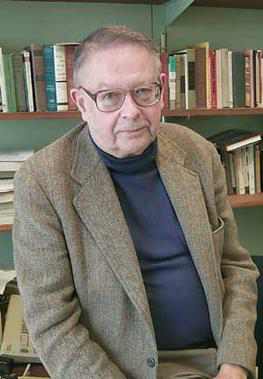Kenneth Neal Waltz (June 8, 1924 – May 12, 2013 was an American political scientist who was a member of the faculty at both the University of California, Berkeley and Columbia University and one of the most prominent scholars in the field of international relations. He was a veteran of both World War II and the Korean War.
Waltz was one of the original founders of neorealism, or structural realism, in international relations theory and later became associated with the school of defensive neorealism. Waltz's theories have been extensively debated within the field of international relations. His 1979 book Theory of International Politics is the most assigned book in International Relations graduate training at U.S. universities.
"With the demise of the Soviet Union, the international-political system became unipolar. In the light of structural theory, unipolarity appears as the least durable of international configurations. This is so for two main reasons. One is that dominant powers take on too many tasks beyond their own borders, thus weakening themselves in the long run. Ted Robert Gurr, after examining 336 politics, reaches the same conclusion that Robert G. Wesson had reached earlier: 'Imperial decay is... primarily a result of the misuse of power which follows inevitably from its concentration'. The other reason for the short duration of unipolarity is that even if a dominant power behaves with moderation, restraint and forbearance, weaker states will worry about its future behaviour. America's founding fathers warned against the perils of power in the absence of checks and balances. Is unbalanced power less of a danger in international than in national politics? Throughout the Cold War, what the United States and the Soviet Union did, and how they interacted, were dominant factors in international politics. The two countries, however, constrained each other. Now the United States is alone in the world. As nature abhors a vacuum, so international politics abhors unbalanced power. Faced by unbalanced power, some states try to increase their own strength or they ally with others to bring the international distribution of power into balance." - Kenneth N. Waltz, "NATO expansion: A realist's view" Contemporary Security Policy, Volume 21, 2000 - Issue 2: Explaining Nato Enlargement.
Video Title: An Interview with Kenneth Waltz. Source: Annual Reviews. Date Published: May 26, 2011.
